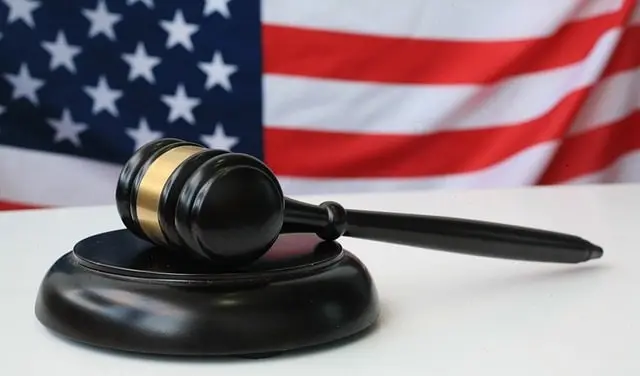In a significant and high-profile case, Johns Hopkins All Children’s Hospital in Florida was recently found liable for $261 million in damages to the family of Maya Kowalski, the central figure in the Netflix documentary Take Care of Maya. This verdict came after years of legal wrangling over allegations of medical malpractice, wrongful death, false imprisonment, and other serious claims. The Kowalski family’s ordeal shines a light on the sensitive balance between child protection, parental rights, and medical ethics, as well as the implications for healthcare providers when misdiagnoses lead to catastrophic outcomes.
Background: A Mother’s Battle and a Family’s Tragedy
In October 2016, Maya Kowalski, then a nine-year-old suffering from complex regional pain syndrome (CRPS), was brought to Johns Hopkins All Children’s Hospital by her mother, Beata. CRPS, a rare and debilitating condition, had left Maya in chronic pain, and her treatment included high doses of ketamine, administered under the supervision of specialists. However, Beata Kowalski’s insistence on her daughter’s treatment raised suspicions among hospital staff, who accused her of Munchausen syndrome by proxy—a condition where a caregiver induces or fabricates illness in another person, usually to gain attention or sympathy.
Hospital staff reported their concerns to Florida’s Department of Children and Families (DCF), which led to a judge’s order to keep Maya in hospital custody, effectively separating her from her family for 87 days. During this time, Beata Kowalski was barred from seeing her daughter, and the mounting pressure and trauma allegedly contributed to her taking her own life in early 2017. Her death, along with the hospital’s handling of Maya’s case, became the foundation of the Kowalski family’s lawsuit against the hospital.
The Lawsuit: Claims of Medical Negligence and Emotional Distress
The Kowalski family’s lawsuit centered on several serious allegations against Johns Hopkins All Children’s Hospital. They argued that Maya was “falsely imprisoned” and subjected to unnecessary psychiatric evaluations and invasive procedures, despite conflicting opinions from other medical experts regarding her diagnosis. Beata’s husband, Jack Kowalski, and their legal team contended that the hospital staff’s actions, including around-the-clock surveillance and isolating Maya from her family, led to severe emotional and psychological harm for both Maya and her mother. Furthermore, they argued that Beata’s death was a direct consequence of the hospital’s negligence and the anguish caused by their accusations.
In a notable decision, the jury awarded the Kowalski family over $261 million, including $50 million in punitive damages, signaling a strong rebuke of the hospital’s conduct. This verdict was based on the jury’s findings that the hospital had committed false imprisonment, intentional infliction of emotional distress, and wrongful death, among other claims. The high-profile nature of the case, further elevated by the Netflix documentary, underscored the hospital’s actions and the family’s suffering, which significantly influenced public perception and, likely, the jury’s decision.
Johns Hopkins’ Defense and Plans for Appeal
Johns Hopkins All Children’s Hospital has maintained that its staff acted in Maya’s best interests according to standard medical protocols. The hospital argued that the decision to contact DCF was guided by Florida’s mandatory reporting laws, which require medical staff to report suspected child abuse. They further claimed that Beata’s requests for high doses of ketamine raised legitimate concerns, given the potential risks associated with the treatment. The hospital has announced plans to appeal the verdict, citing “prejudicial errors” in the trial process and the actions of the plaintiffs’ counsel.
The hospital’s lead attorney, Howard Hunter, stated that Johns Hopkins plans to contest the verdict on grounds that they complied with legal obligations and acted responsibly under challenging circumstances. The hospital maintains that the staff’s actions were driven by patient welfare, not malice, and that the appeal will aim to address procedural issues that could have influenced the jury’s decision.
Legal and Ethical Implications for Medical Institutions
The Kowalski case has sparked significant discussion in the medical and legal communities. Child abuse and neglect cases are inherently complex, and misdiagnoses in such sensitive matters can lead to devastating consequences. Hospitals and healthcare providers are now likely to scrutinize their internal protocols, particularly when it comes to involving authorities in cases of suspected child abuse, which has raised concerns about balancing protective actions with respecting family rights.
For healthcare providers, this case emphasizes the importance of collaboration and second opinions in complex diagnoses, especially in cases involving rare diseases and non-standard treatments. The legal fallout of the Kowalski case could lead to heightened caution and potential changes in child abuse reporting policies to prevent similar tragedies. It may also encourage other healthcare institutions to develop more robust support systems for families undergoing scrutiny and stress due to medical misdiagnoses.
Looking Forward: What’s Next for the Kowalskis and Johns Hopkins?
As Johns Hopkins prepares its appeal, the Kowalski family has also filed additional complaints, including allegations of sexual abuse during Maya’s stay at the hospital. The family claims that while in the hospital’s custody, Maya experienced further violations of her rights, which have recently resurfaced as part of the legal proceedings. This development is likely to add further layers of complexity to the ongoing litigation, potentially impacting the hospital’s defense strategy.
The Kowalski case underscores the ongoing tension between medical institutions’ responsibilities to protect patients and the rights of families. For the Kowalskis, the recent verdict offers some closure, though the financial award can hardly compensate for their traumatic loss. As the case moves forward, it will continue to shape discussions around medical ethics, patient rights, and accountability within the healthcare industry.
The outcome of Johns Hopkins’ appeal will be pivotal, potentially impacting similar cases in the future and reinforcing the standards to which medical institutions must adhere. For now, the Kowalski case stands as a stark reminder of the profound impact medical decisions and accusations can have on families, and it highlights the need for careful, empathetic handling of complex cases that intersect health and family welfare.


